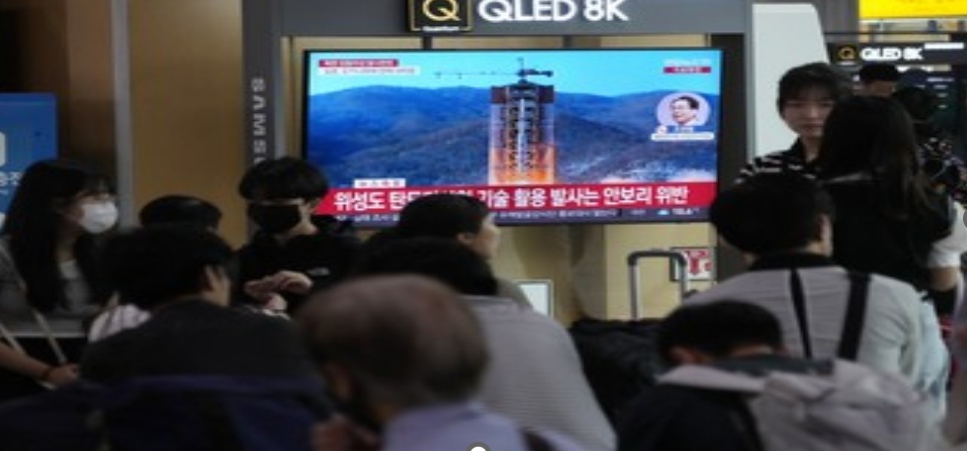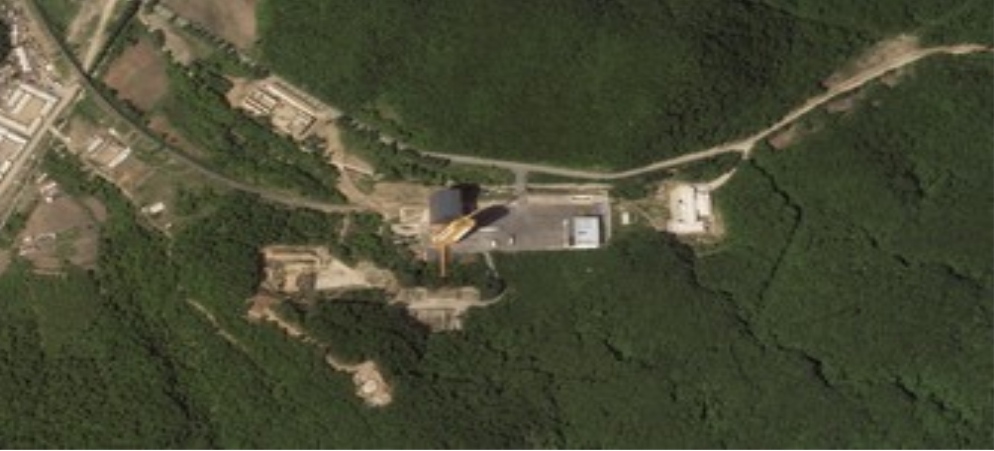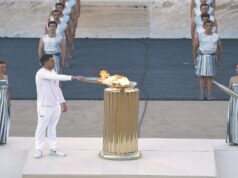North Korea says spy satellite launch failed after rocket trouble

A TV screen shows a file image of North Korea’s rocket launch during a news program at the Seoul Railway Station in Seoul, South Korea, on May 31, 2023.
North Korea fired a rocket carrying a spy satellite on Wednesday, but the launch failed due to engine trouble, the country’s official Korean Central News Agency said.
The 6:27 a.m. firing came on the first day of a launch window announced by North Korea for its first “military reconnaissance satellite,” with the country vowing to conduct a second launch “as soon as possible” after the failure, according to KCNA.
The projectile fired from a site near Tongchang-ri, northwestern North Korea, may have disappeared over the Yellow Sea at around 6:35 a.m., the Japanese government said, adding it did not reach the intended distance announced by Pyongyang.
The South Korean military said the projectile fell about 200 kilometers from the nation’s Eocheong Island in the Yellow Sea and it was retrieving an object that appeared to be part of what North Korea had claimed was a “space launch vehicle.”
KCNA said the rocket carrying the spy satellite experienced an abnormal firing of its second-stage engine, losing propulsion.
The firing of the projectile came after North Korean leader Kim Jong Un instructed his country’s space agency to make final preparations for the launch of Pyongyang’s first military reconnaissance satellite.

This satellite picture by Planet Labs PBC shows activity at a launch pad at the Sohae Satellite Launching Station near Tongchang-ri, North Korea, on May 30, 2023. Satellite images taken Tuesday analyzed by The Associated Press showed activity at a main pad at North Korea’s Sohae Satellite Launching Station — suggesting the satellite’s blast off would be soon.
Japanese Prime Minister Fumio Kishida told reporters in Tokyo the government was collecting and analyzing information about the launch and there were no reports of damage from the projectile.
Japan lodged a protest with North Korea over the launch, Chief Cabinet Secretary Hirokazu Matsuno, the top government spokesman, said at a press conference, adding whether the projectile was a rocket with a satellite was still “under analysis.”
Pyongyang notified the Japan Coast Guard of three maritime danger zones in which an object could land during the launch period between Wednesday and June 11.
Two of the areas are located to the west of the Korean Peninsula and the third to the east of the Philippines, with all three outside of Japan’s exclusive economic zone.
Japanese Defence Minister Yasukazu Hamada told reporters that the Self-Defence Forces will maintain their vigilance and readiness to intercept as the announced launch window has not yet concluded.
On Monday, Hamada ordered the SDF to destroy any projectile fired by North Korea if it was expected to cross into Japanese territory.
But ground-based Patriot Advanced Capability-3 interceptor missiles were not deployed at a planned site on Okinawa Prefecture’s Ishigaki Island in the East China Sea due to the approach of a typhoon, a source familiar with the matter said.
The SDF, meanwhile, have deployed PAC-3 systems on the remote islands of Miyako and Yonaguni in the southern prefecture.
In the wake of the launch, Takehiro Funakoshi, the Japanese Foreign Ministry’s Asian and Oceanian Affairs Bureau chief, and his South Korean and U.S. counterparts, Kim Gunn and Sung Kim, agreed during phone talks that the three nations will continue to monitor the North’s moves.
On Monday, Ri Pyong Chol, vice chairman of the Central Military Commission of the Workers’ Party of Korea, said the North’s military reconnaissance satellite was “indispensable to tracking, monitoring, discriminating, controlling and coping with in advance in real time the dangerous military acts of the U.S. and its vassal forces.”
Noting “the reckless military acts” of the United States and South Korea, “We steadily feel the need to expand reconnaissance and information means and improve various defensive and offensive weapons,” Ri said.
Emphasizing that Japan considers the launch of a rocket carrying a satellite equivalent to a ballistic missile test on the basis of historical precedent, Kishida had warned that following through on the plan would violate U.N. Security Council resolutions.
Sanctions have been imposed on North Korea for its weapons-related activities based on the U.N. resolutions.
Pyongyang, which launched missiles a record 37 times last year, has continued firing ballistic missiles this year, with fears mounting that the country may be preparing to conduct its seventh nuclear test in the near future.



